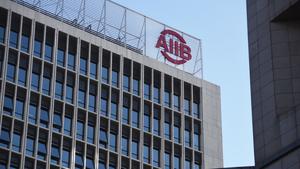 A view of the headquarters of the Asian Infrastructure Investment Bank (AIIB) in Beijing, Jan 13, 2016. (PHOTO / IC)
A view of the headquarters of the Asian Infrastructure Investment Bank (AIIB) in Beijing, Jan 13, 2016. (PHOTO / IC)
The Asian Infrastructure Investment Bank announced on Friday it is proposing to its board of directors to create a crisis recovery facility in response to urgent economic, financial and public health pressure and to support a quick recovery after the current COVID-19 crisis.
The facility will offer an initial US$5 billion of financing to both public and private sector entities facing serious adverse impacts as a result of the pandemic. It will offer dedicated financing for qualified projects within its membership for the next 18 months. The size of the facility could be increased depending on client demand.
It will offer dedicated financing for qualified projects within its membership for the next 18 months
AIIB is also exploring how it can use its Project Preparation Special Fund to help its members, especially low-income members, whose economies are being particularly affected by COVID-19.
READ MORE: AIIB to fund emergency public health infrastructure in China
"A well-managed and robust development institution must be nimble enough to deal with external shocks and responsive enough to adapt to the changing needs of its clients. We will adhere to our mission of promoting economic and social development in Asia and quickly respond to our clients' needs," said Jin Liqun, AIIB president and chair of the board of directors.
"The international community needs to come together to pool our resources to help the world navigate the current pandemic and economic upheaval. AIIB is committed to playing its full part," he said.
ALSO READ: AIIB headquarters to open in Beijing in early 2020
The facility could offer financing to meet emergency public health needs, such as health infrastructure for emergency preparedness, and support infrastructure projects that are severely impacted by the pandemic. It could also provide the funds needed to preserve the production capacity of other productive sectors, including manufacturing, that have been hit by COVID-19.


